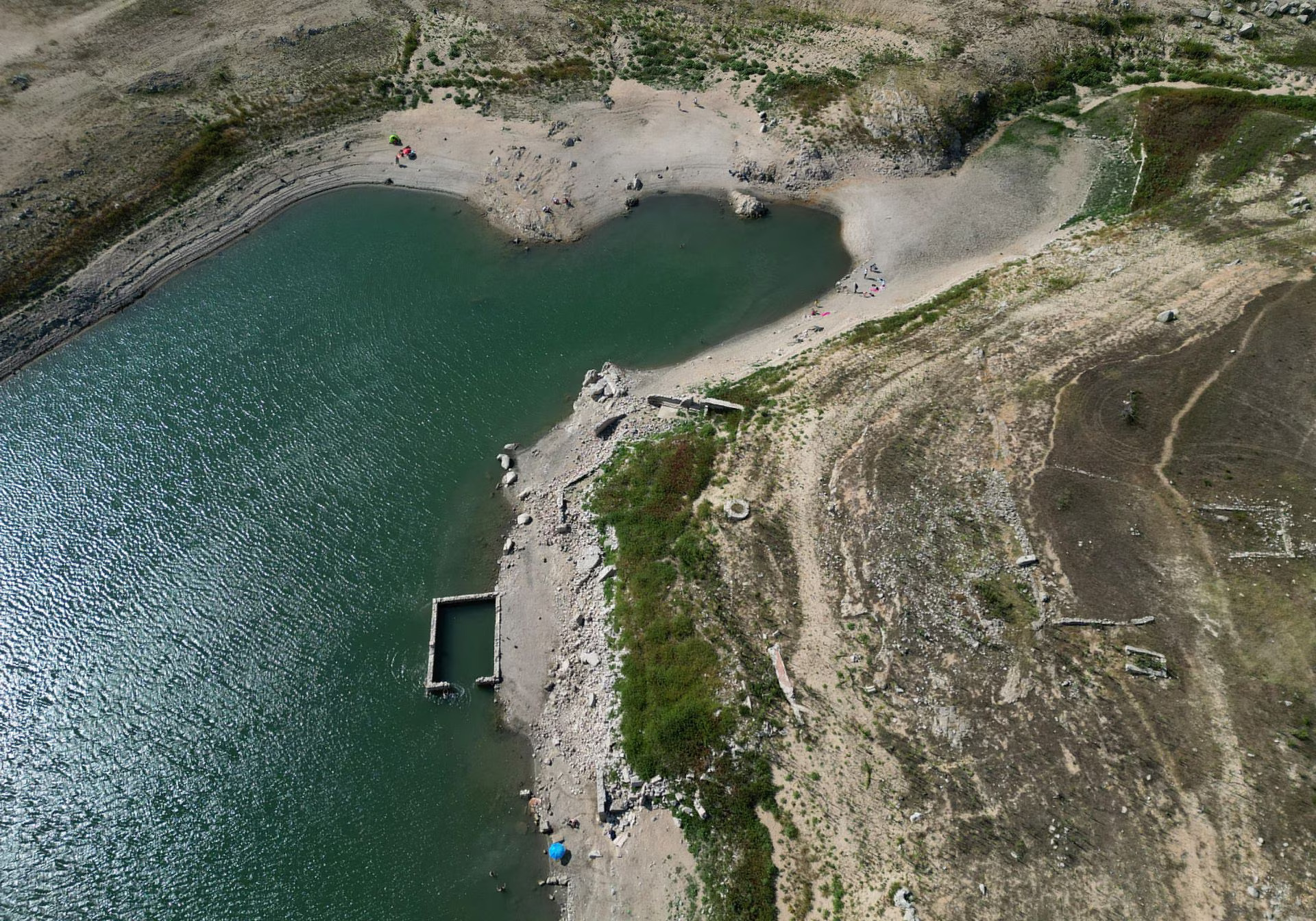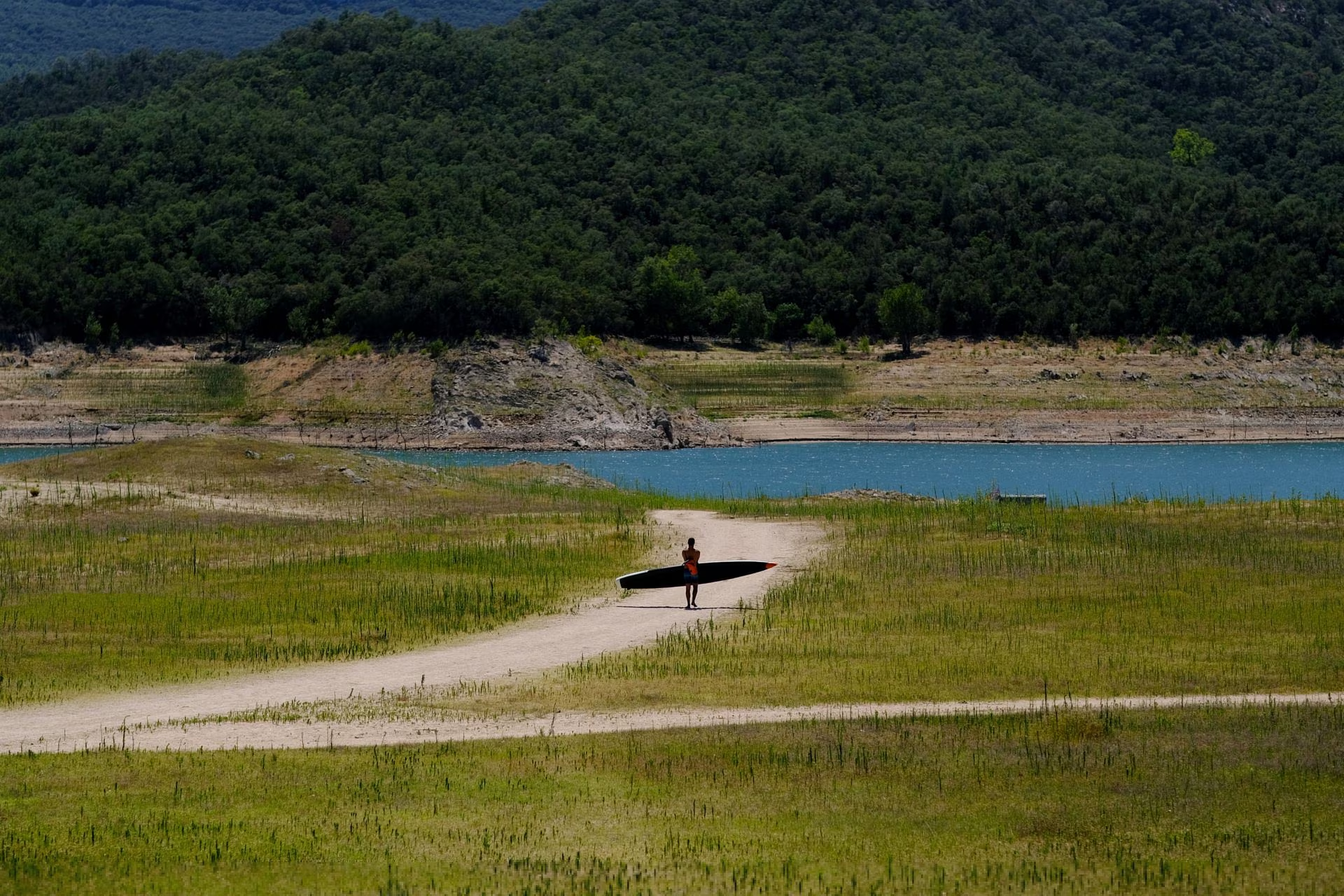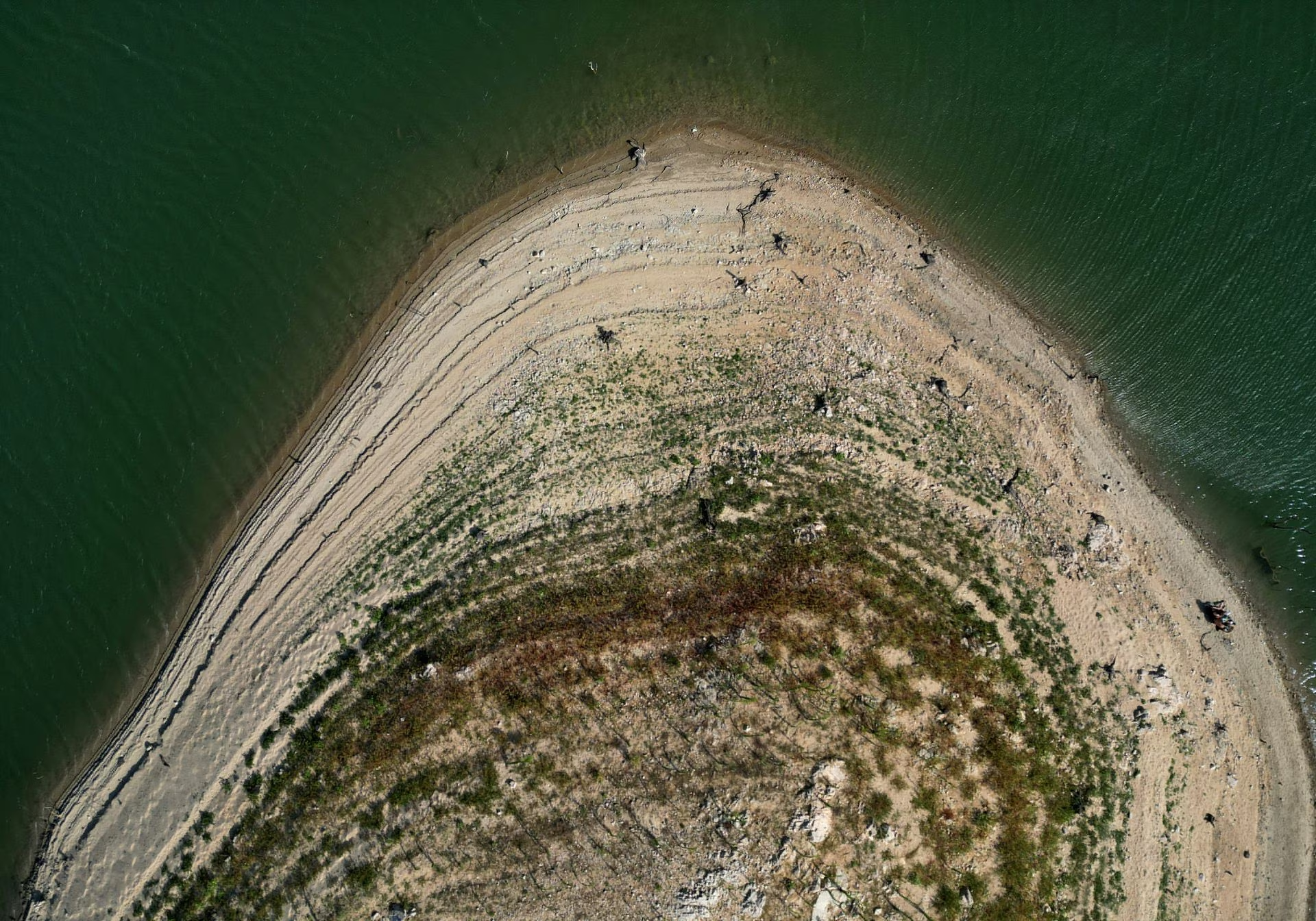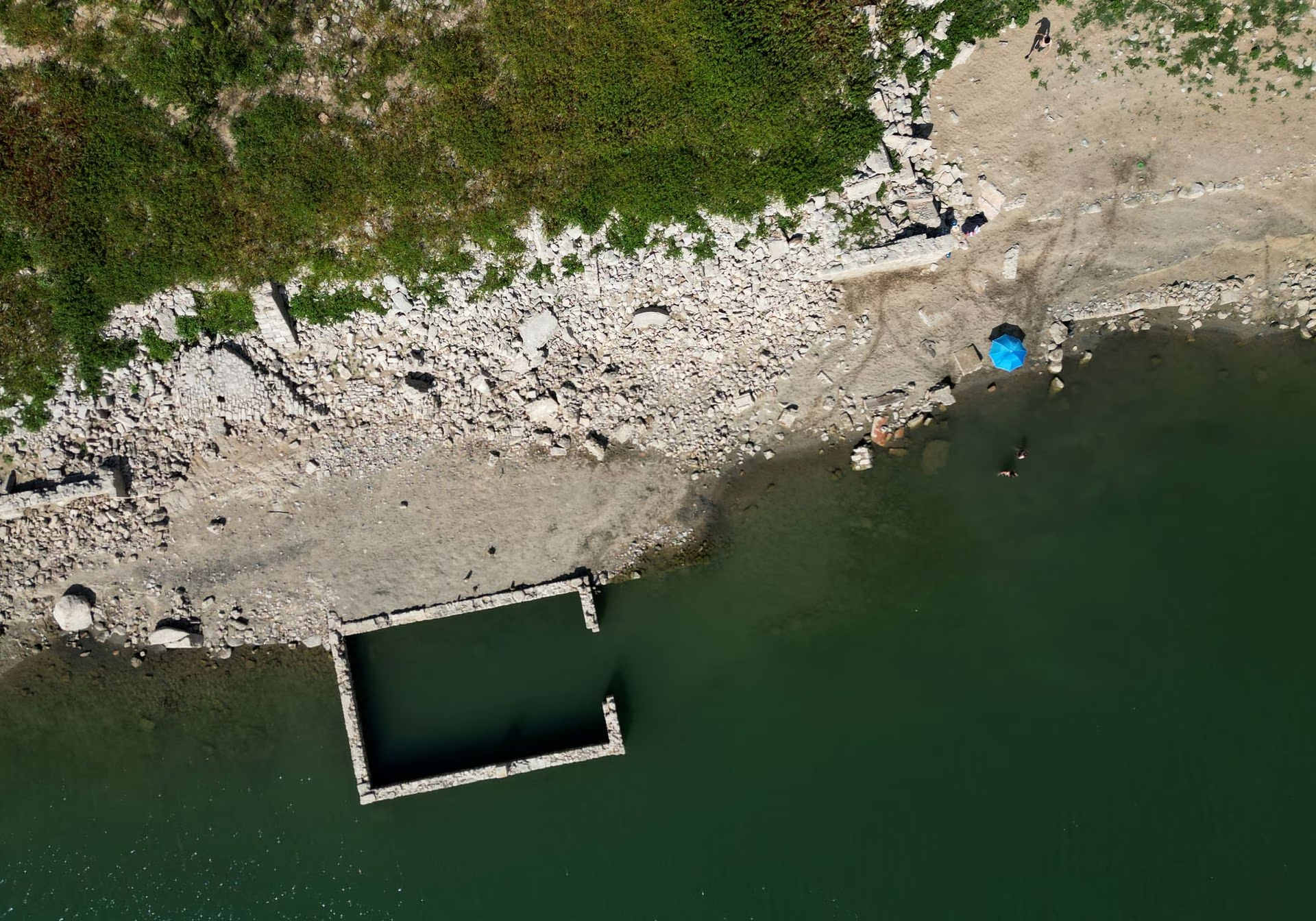In a stark illustration of the deepening water crisis in Spain, the once picturesque Darnius Boadella reservoir in northeastern Spain has been transformed into a mere shadow of its former self due to a prolonged and severe drought. Artur Duran, a 79-year-old local resident, reminisces about the reservoir's healthier state just two years ago when it was deep enough for sailing. Today, it stands at a mere 20% of its capacity, a grim testament to the devastating impact of water scarcity.

Visitors to the reservoir's newly-exposed shores now find themselves sunbathing on land that was once submerged. Sparse patches of grass have emerged where water once rippled, and some adventurous souls even attempt to paddle-surf in the shallow waters that remain. However, these scenes of leisure belie a much more concerning issue: Spain is grappling with one of the driest spells in its recorded history.
The drought's grip on the region has prompted authorities to take action. Catalonia, the region most affected by the water shortage, recently imposed stringent water usage restrictions on 22 villages situated around the Darnius Boadella reservoir.

This decision was made out of necessity, as the aquifer that supplies these villages is also rapidly depleting. The situation is exacerbated by a series of heatwaves that have swept across Spain and Europe this summer, accelerating water evaporation and consumption.
As per Ruben del Campo, spokesperson for Spain's meteorological agency AEMET, the country experienced the driest start to a year in the first four months of 2023 since record-keeping began in the 1960s. Regions such as Catalonia and Andalusia in southern Spain have borne the brunt of this climatic crisis.

In response to the growing emergency, the affected villages have been placed under a state of water emergency. This designation necessitates a significant reduction in water consumption by residents. Previously set at 230 liters per person per day, the cap has been lowered to 200 liters in a bid to conserve the dwindling water resources. Although authorities have not yet curtailed water usage for essential human needs, stricter measures have been imposed on non-essential water activities.
Agricultural irrigation, a major consumer of water, is set to be largely banned, while water use for industrial and recreational purposes must be reduced by a quarter. The village of Agullana, home to around 900 residents,

has been proactive in adjusting to the new regulations. Mayor Josep Jovell revealed that the village has been operating under the 200-liter limit for several months, but further steps are now required to ensure compliance.
"We'll reduce to zero the irrigation of gardens, the football field, the grass by the swimming pool, which we'll see turning yellow as if burnt," Josep Jovell lamented.
Streets will no longer be cleaned using water; instead, dry sweeping methods will be employed.
As Spain grapples with the devastating consequences of this ongoing drought, it becomes increasingly evident that decisive action and sustainable water management practices are essential to safeguard the country's precious water resources for future generations. The challenges posed by climate change demand collaborative efforts and innovative solutions to mitigate the impact of droughts and ensure a more resilient future.
Follow Daryo's official Instagram and Threads pages to keep up to date on world news.
Comments (0)